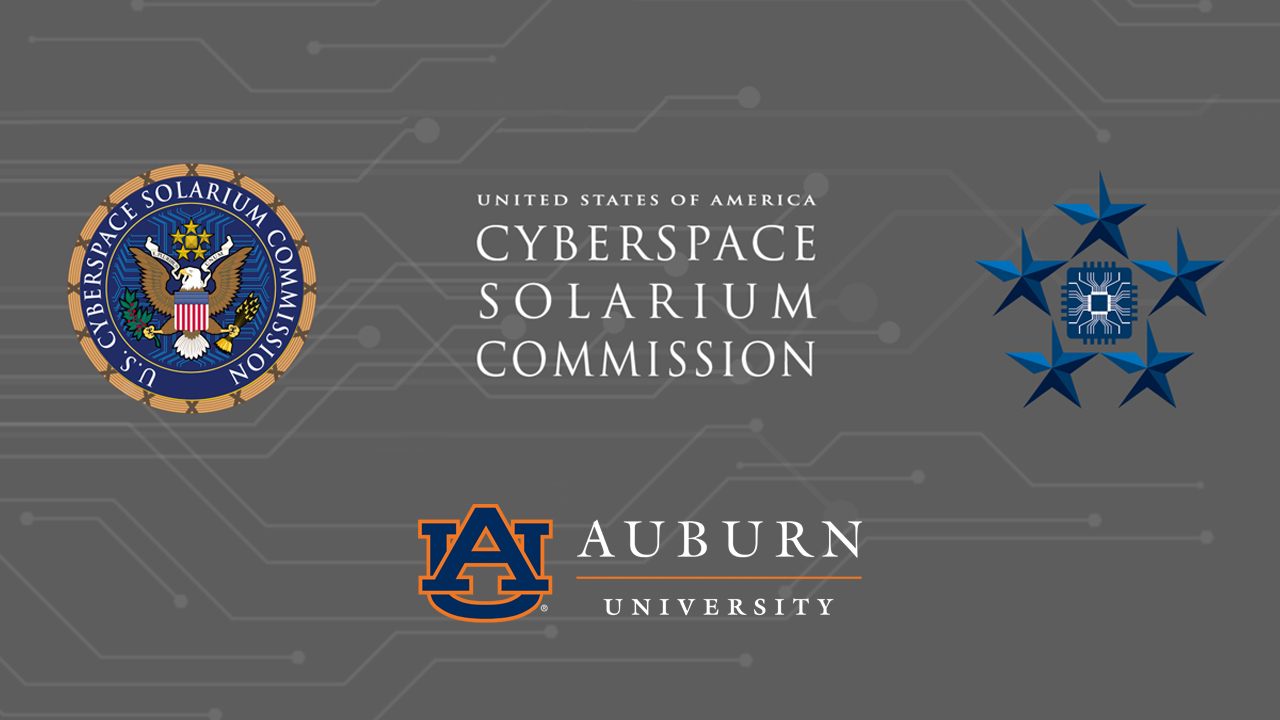Auburn University partners with U.S. Cyberspace Solarium Commission for live virtual event
Published: Apr 28, 2020 1:25 PM
By Austin Phillips
Following its official report on cybersecurity strategy and policy recommendations in March, the U.S. Cyberspace Solarium Commission will partner with Auburn University’s McCrary Institute for Cyber and Critical Infrastructure Security on Wednesday, April 29, for a 90-minute live event titled “Is Deterrence Possible in Cyberspace?”.
The virtual event will begin at noon CT, and will be livestreamed at aub.ie/deterrence. To register for the livestream event, click here.
McCrary Institute Director and Solarium Commissioner Frank J. Cilluffo will moderate the two-panel discussion, which will include a question-and-answer session. Questions may be submitted through email here or live on Twitter, Facebook and YouTube.
The first panel, which will address the topic of “Can We Practice Deterrence in Cyberspace?” will consist of U.S. Rep. Mike Gallagher, R-Wis., Solarium commissioner; and Joseph Nye, Harvard University Distinguished Service Professor Emeritus.
The second panel, which will address the topic of “Layered Cyber Deterrence and Forward Defense,” will consist of retired Rear Adm. Mark Montgomery, Solarium Commission executive director; Richard Harknett, Solarium Commission Red Team member; and Brandon Valeriano, Solarium Commission staff senior advisor.
In March, the commission unveiled its report detailing a comprehensive strategic approach with policy recommendations for implementation. After conducting an extensive study including more than 300 interviews, the commission advocates a new strategic approach to cybersecurity — layered cyber deterrence. The desired end state of layered cyber deterrence is to reduce the probability and impact of cyberattacks of significant consequence.
The strategy outlines three ways to achieve this end state: shaping behavior by working with allies and partners to promote responsible behavior in cyberspace; denying benefits to adversaries who have long exploited cyberspace to their advantage and to American disadvantage; and imposing costs by maintaining the capability, capacity and credibility needed to retaliate against actors who target America through cyberspace.
The official report consists of more than 75 recommendations organized by six key pillars: reform the U.S. government’s structure and organization for cyberspace, strengthen norms and non-military tools, promote national resilience, reshape the cyber ecosystem, operationalize cybersecurity collaboration with the private sector, and preserve and employ the military instrument of national power.
Media Contact: , austinp@auburn.edu, 334-844-2444
The U.S. Cyberspace Solarium Commission will partner with Auburn University’s McCrary Institute for Cyber and Critical Infrastructure Security on Wednesday, April 29


